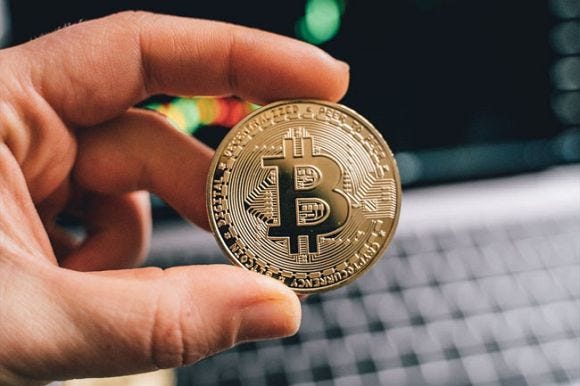It's good news week
Amid the chaos of the world, a few global developments have given us hope for a better political, financial and environmental future. Professor John Quiggin shares the good news.
My latest from Independent Australia
WE’VE HAD PLENTY of practice dealing with bad news over the last few years. Australia went from catastrophic bushfires at the end of 2019 to the COVID pandemic that immediately followed them. The 2020 Presidential Election, far from putting an end to the Trump era, led to the 6 January insurrection and the creation of a mass movement explicitly devoted to ending democracy in the U.S.
The zero interest rate policies that protected the global economy from the worst impact of the pandemic and the associated lockdowns fuelled the growth of climate-destroying cryptocurrencies like Bitcoin. And, emboldened by the apparent weakness of the democratic world, Vladimir Putin launched an invasion of Ukraine.
In such miserable times, a week marked almost entirely by good news is just about a miracle and needs to be celebrated, even as we prepare for the likelihood of more bad news to come.
America’s destructive nightmare may soon be over
Among the points to be celebrated:
a strong Democratic performance in the U.S. midterm elections;
the liberation of the city of Kherson from Russian occupation;
the collapse of fraudulent cryptocurrency exchanges and a big drop in the price of Bitcoin; and
modest but significant progress at COP27.
The U.S. midterm elections were probably the most significant and surprising. As the elections approached, it was clear that most Republican voters were willing to support candidates who supported the insurrection and subsequent attempts to overturn the Election.
If successful at the state level, those candidates would have been able to choose pro-Trump delegations to the Electoral College, regardless of how the electorate voted. And, even if that didn’t happen, a Republican majority in the House of Representatives could have overturned the Election outcome, as most of them voted to do in 2021, even as the insurrection was taking place.
As it turned out, enough voters cared about democracy to make a difference. Election deniers running for positions where they could actually overturn elections were uniformly defeated. And, while the Republicans appear likely to gain a majority in the House, it will be so narrow that they will be unable to act out fantasies like impeaching President Biden, shutting down the Government or overturning the next election.
U.S. mid-term elections to determine if Trump 'crazies' take the wheel
Nevertheless, it is too soon to relax. The rules of the system are rigged in favour of Republicans. There is every chance that Trump or another Republican could win in 2024 and change the rules even further, to the point where the Democrats would be permanently locked out of office.
The good news from Ukraine is also striking. Despite threats and blandishments of all kinds, the democratic world has not wavered in its support for Ukraine even if undemocratic “allies” such as Hungary, India, Israel and Saudi Arabia have played both sides of the street. And the Ukrainian people have made good use of the military and economic support they have been given to drive out the invaders.
Still, the good news comes with plenty of qualifications. Ukraine has now regained around half the territory lost since the February invasion. Liberating the rest will be a long and bloody business. Driving Russia from territory occupied since 2014, where the regime has significant popular support, will be even more difficult.
A ceasefire with Russia retreating to its pre-February position would provide a starting point for negotiations, but there is no sign that either side would be willing to accept such terms.
The collapse of cryptocurrency exchange, FTX, with apparent losses of more than U.S.$30 billion (AU$44.6 billion) is the latest in a string of such disasters, but may be the one that finally brings the cryptocurrency mania to an end.
Cryptocurrency adding to problems of the modern internet
It has become apparent that having crypto assets held by an exchange risks total loss. But the alternative of “self-custody” – that is, managing the crypto assets and the associated digital keys personally – is too complex for the vast majority of retail investors. So, we are likely to see a gradual withdrawal from crypto and a reduction in the wasteful and destructive process of “mining” coins like Bitcoin.
Finally, although the COP27 conference was mainly about implementation, the issue of a loss and damage fund finally made it to the top of the agenda. A draft text says COP27 will launch a two-year process in which countries would work on how to provide funding to developing countries suffering “loss and damage” and gave two options for what that process could deliver. However, final agreement remains uncertain at the time of writing.
It may be a while before we have another good news week like this one. But the fact that it happened at all should give us hope and strength to struggle for a better world.





